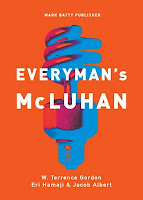“IF YOU TAKE IT TOO SERIOUSLY,
YOU’RE AN IDIOT”
You might not care too much about poetry. But the latest Poet Laureate of the United States might alter your opinion slightly.
And I think he often speaks to ideas and ideals that are fundamental to the purposes of TGIM & FYI.
 Philip Levine – author of 20 or so collections of poems – was recently chosen as Poet Laureate #18 and comes out of a tradition that’s more in accord with folks who earn their living by the sweat of their brow than dwellers in the ivory towers of academia.
Philip Levine – author of 20 or so collections of poems – was recently chosen as Poet Laureate #18 and comes out of a tradition that’s more in accord with folks who earn their living by the sweat of their brow than dwellers in the ivory towers of academia. He grew up in Detroit and, before embracing poetry as a way of life, labored at what he called a succession of “stupid jobs” -- building cars in the auto industry and driving trucks.
But, although he has certifiable blue-collar credentials, as he’s said: “I’m so weary of that anti-intellectual stance … I love intelligent poetry.”
Strictly speaking, the poet laureate has few official duties. Lately, however, the laureates have worked to broaden the audience for poetry. And it sounds as if Levine will follow that line.
“I know a great many poems that I love and that most people have never heard of,” he was quoted in The New York Times as having said.
“Some of them are quite magnificent.”
He hadn’t particularly aspired to be poet laureate The Times reported, but was pleased that after a long career (he’s 83) the honor had come his way.
“How can I put it … If you take it too seriously, you’re an idiot. But if you look at the names of the others who have won it, most of them are damn good. Not all of them – I’m not going to name names – but most.
“My editor was thrilled, and my wife jumped for joy. She hasn’t done that for a while.”
TGIM Takeaway: Maybe in the heat of this August, with S&P downgrades, soaring under- and unemployment, and a lot of un-poetic blather and bluster ringing in our ears, this laureate from the industrial heartland has a poetic message that TGIM readers can connect to as never before.
TGIM ACTION IDEA: Give it a try. Below, sourced from the Internet Poetry Archive is the title poem from Philip Levine’s award-winning book, What Work Is (Alfred A. Knopf, 1991).
We stand in the rain in a long line
waiting at Ford Highland Park. For work.
You know what work is--if you're
old enough to read this you know what
work is, although you may not do it.
Forget you. This is about waiting,
shifting from one foot to another.
Feeling the light rain falling like mist
into your hair, blurring your vision
until you think you see your own brother
ahead of you, maybe ten places.
You rub your glasses with your fingers,
and of course it's someone else's brother,
narrower across the shoulders than
yours but with the same sad slouch, the grin
that does not hide the stubbornness,
the sad refusal to give in to
rain, to the hours wasted waiting,
to the knowledge that somewhere ahead
a man is waiting who will say, "No,
we're not hiring today," for any
reason he wants. You love your brother,
now suddenly you can hardly stand
the love flooding you for your brother,
who's not beside you or behind or
ahead because he's home trying to
sleep off a miserable night shift
at Cadillac so he can get up
before noon to study his German.
Works eight hours a night so he can sing
Wagner, the opera you hate most,
the worst music ever invented.
How long has it been since you told him
you loved him, held his wide shoulders,
opened your eyes wide and said those words,
and maybe kissed his cheek? You've never
done something so simple, so obvious,
not because you're too young or too dumb,
not because you're jealous or even mean
or incapable of crying in
the presence of another man, no,
just because you don't know what work is.
waiting at Ford Highland Park. For work.
You know what work is--if you're
old enough to read this you know what
work is, although you may not do it.
Forget you. This is about waiting,
shifting from one foot to another.
Feeling the light rain falling like mist
into your hair, blurring your vision
until you think you see your own brother
ahead of you, maybe ten places.
You rub your glasses with your fingers,
and of course it's someone else's brother,
narrower across the shoulders than
yours but with the same sad slouch, the grin
that does not hide the stubbornness,
the sad refusal to give in to
rain, to the hours wasted waiting,
to the knowledge that somewhere ahead
a man is waiting who will say, "No,
we're not hiring today," for any
reason he wants. You love your brother,
now suddenly you can hardly stand
the love flooding you for your brother,
who's not beside you or behind or
ahead because he's home trying to
sleep off a miserable night shift
at Cadillac so he can get up
before noon to study his German.
Works eight hours a night so he can sing
Wagner, the opera you hate most,
the worst music ever invented.
How long has it been since you told him
you loved him, held his wide shoulders,
opened your eyes wide and said those words,
and maybe kissed his cheek? You've never
done something so simple, so obvious,
not because you're too young or too dumb,
not because you're jealous or even mean
or incapable of crying in
the presence of another man, no,
just because you don't know what work is.
I hope I love intelligent poetry. And –
I love you brother (and sister).
Geoff Steck
Chief Catalyst
Alexander Publishing & Marketing
8 Depot SquareChief Catalyst
Alexander Publishing & Marketing
Englewood, NJ 07631
201-569-5373
tgimguy@gmail.com
P.S. Here’s one of my favorite quotes about poetry by from one of my favorite poets and writers in general, Robert Graves (1895 – 1985): "If there's no money in poetry, neither is there poetry in money."





